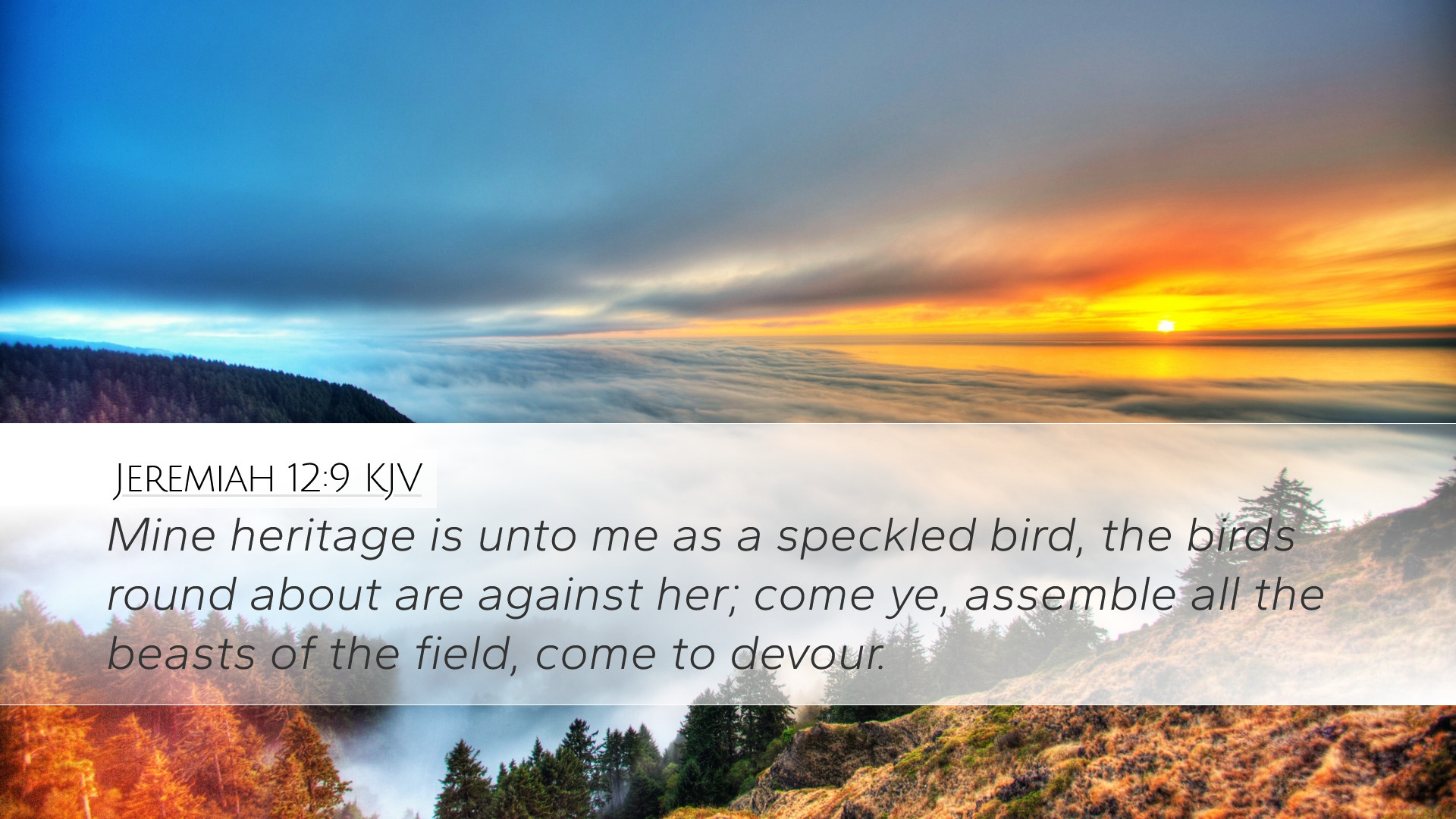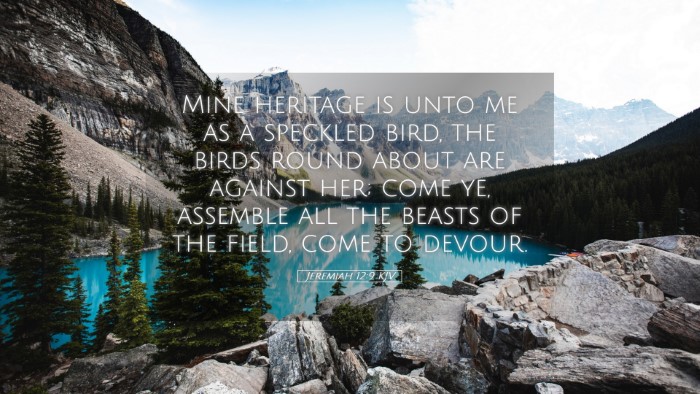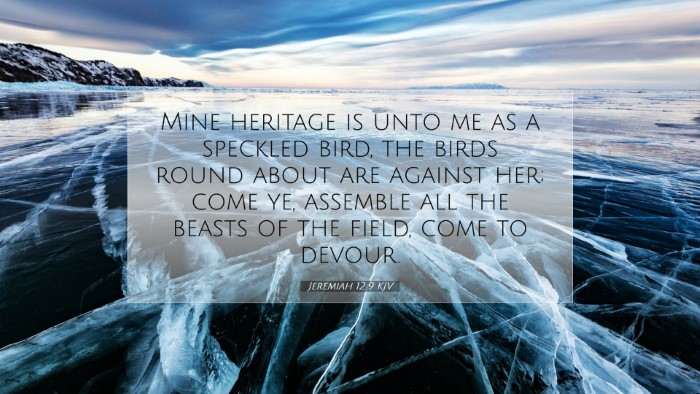Commentary on Jeremiah 12:9
Verse: "Mine heritage is unto me as a speckled bird, the birds round about are against her; come ye, assemble all the beasts of the field, come to devour."
Introduction
The passage in Jeremiah 12:9 reflects the prophet’s anguish and confusion regarding God's people amidst their trials. The imagery employed in this verse captures the essence of God’s relationship with Israel and serves as a powerful metaphor for the conflict between divine intention and the earthly reality faced by the faithful. This commentary synthesizes insights from notable public domain sources to explore the rich theological implications of this verse.
The Speckled Bird: A Metaphor of Distinctiveness
Matthew Henry Commentary: Henry discusses the significance of the "speckled bird," suggesting it symbolizes the diversity of God's heritage, reflecting both beauty and uniqueness amidst threatening adversity. The bird's distinct coloration sets her apart, analogous to the nation of Israel’s election and calling by God.
Albert Barnes: Barnes elaborates by noting that the speckled bird indicates a state of being isolated and vulnerable. He highlights that surrounding birds, representing enemy forces, symbolize the threats faced by Israel. This imagery serves to remind believers that they are often outnumbered and targeted yet still hold a special place in God's plan.
The Vexation and Opposition of God’s People
Jeremiah’s lamentation of being surrounded by hostility introduces an essential theme of shared suffering among God’s people. This reflection offers a deeper understanding of their plight within a hostile world.
- Adam Clarke: Clarke emphasizes the role of adversity in refining faith. He posits that the hostility faced by the people of God—much like the speckled bird—serves to strengthen their resolve and dependence on divine strength.
- Matthew Henry: Henry notes that such opposition often leads to despair among the faithful, and encourages them by affirming God’s sovereign control over the tumultuous circumstances surrounding them.
- Albert Barnes: In a pastoral tone, Barnes reassures that while the people appear outmatched, God remains their defender. Their perceived vulnerability is an opportunity for God to display His might and fidelity.
Divine Sovereignty and Human Struggle
Jeremiah 12:9 invites readers to grapple with the question of divine justice in the face of apparent human suffering, a theme echoed throughout the Book of Jeremiah.
- Matthew Henry: Henry articulates that while the world appears to thrive on injustice and oppression, God’s providence governs all. He encourages believers to remain steadfast, as they are ultimately secure in God's heritage.
- Adam Clarke: Commentary by Clarke highlights the internal conflict of the faithful amidst external pressure. He posits that this tension is often a catalyst for spiritual growth, drawing individuals closer to God.
- Albert Barnes: Barnes reiterates the importance of patience and trust in God, urging believers to understand that all circumstances serve a greater purpose within God's divine timeline.
The Call to Assemble: Community in Trials
The latter part of the verse, "come ye, assemble all the beasts of the field, come to devour," conveys a sense of urgency and the collective experience of trials. It illustrates a call for unity in the face of adversity.
- Albert Barnes: Barnes points out that the call to assembly reflects the communal aspect of faith, emphasizing that the trials faced by one can often resonate in the lives of many. This encourages communal support and intercession.
- Matthew Henry: Henry affirms that God often uses communal experiences of desolation to unify His people, urging them to lean on one another during difficulties.
- Adam Clarke: Clarke posits that the collective call underscores a shared identity and mission among God's people—an encouragement to rise above circumstances together.
Conclusion: Hope Amidst Despair
Jeremiah 12:9 serves as a poignant reminder of the trials that faithful believers often endure in a world filled with conflict. Yet, the imagery of the speckled bird encapsulates both the uniqueness of God's people and their call to rely on divine protection. Through this commentary, it is apparent that God does not abandon His heritage; rather, He refines, protects, and calls His people to endure. Insights from Matthew Henry, Albert Barnes, and Adam Clarke collectively emphasize that while moments of despair may encompass the followers of God, His sovereignty and faithfulness provide an unshakeable foundation for hope.


